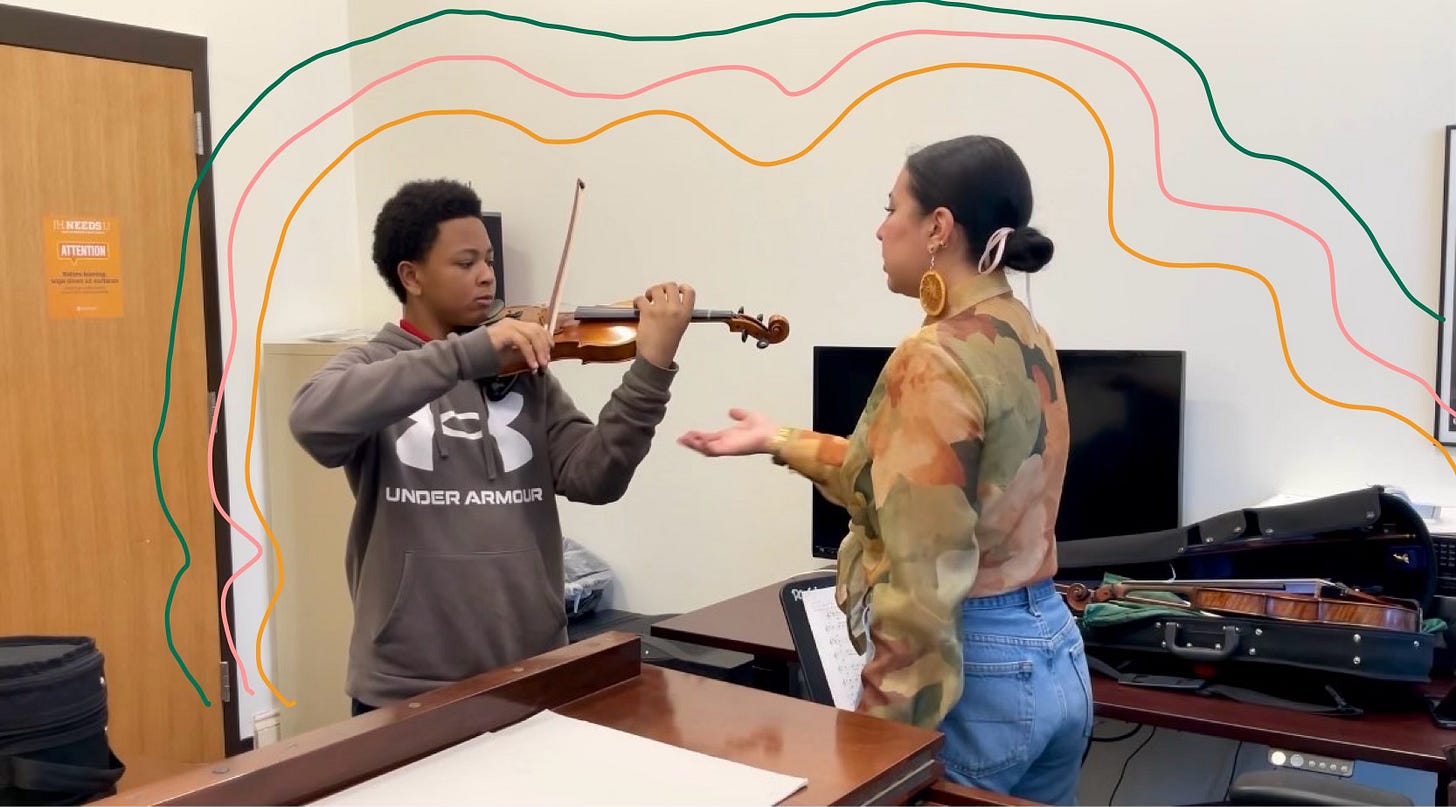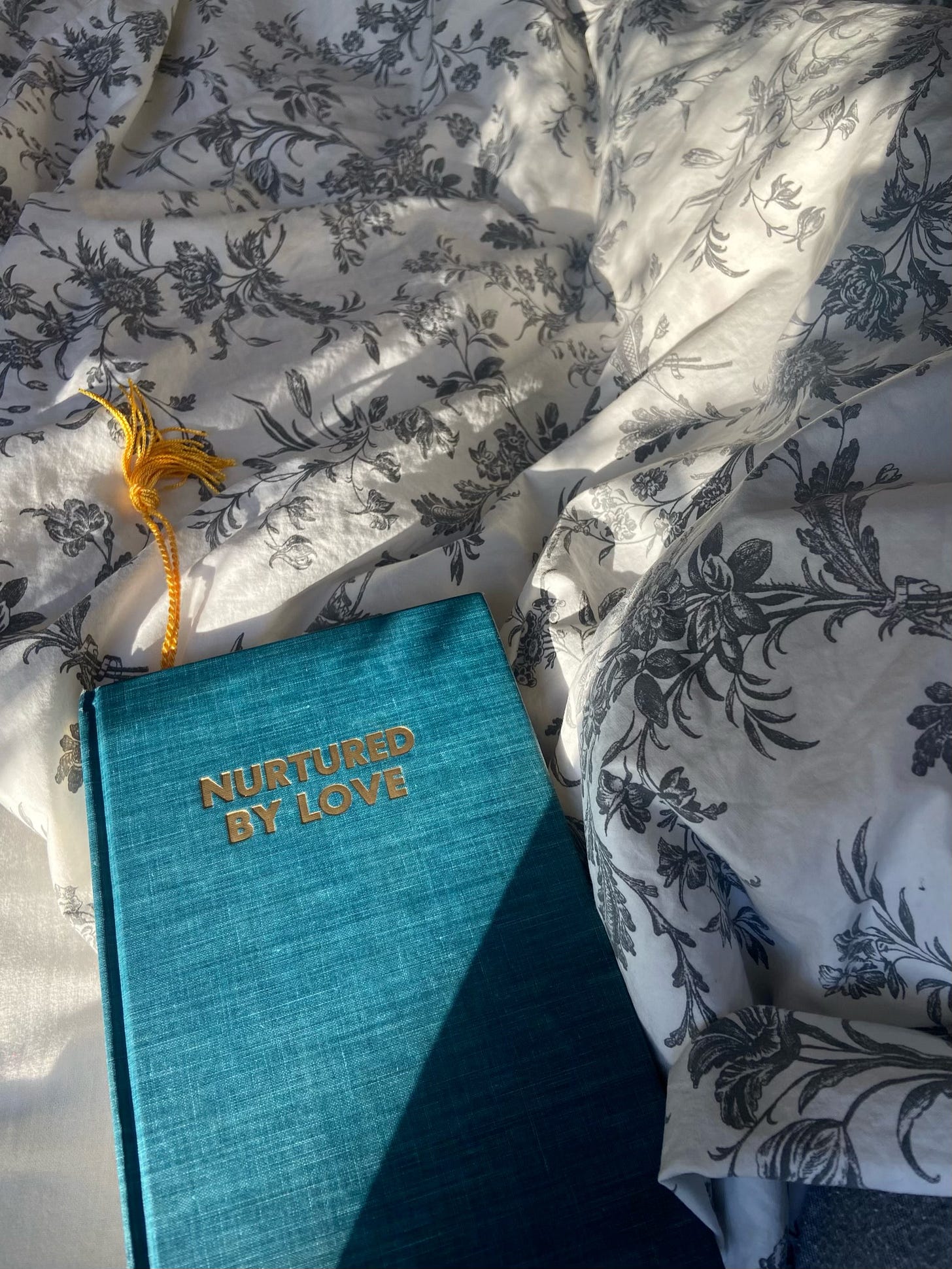Mindful Repetition: An Everyday Practice
I’ve been thinking about how repetition is part of our everyday lives.
Repetition is something we do daily; it’s how we build habits. Over time, these habits become automatic—we don’t need to think about them. You don’t have to think about how to brush your teeth; you just do it.
The same goes for our instruments. We practice and repeat so much that our end goal is to memorize our movements until our muscle memory can take over. Then, we don’t have to think too much about technique—we can focus on creativity. But that can take years and years of practice.
To be honest, as a violinist, I wasn’t always mindful about repeating and why I was doing it, or what my end goal was. But lately, with my students, I’m realizing the importance of mindful repetition. In our lessons, it often boils down to repeating and improving—that’s it.
As a teacher, my goal is for my students to go home being able to play something they couldn’t before, even if it’s just a measure or three notes. That little proof of improvement keeps them motivated.
Mindfulness in repetition is key for seeing better, faster results. We can’t just repeat without knowing why, without staying conscious. Unconscious practice might take longer or even fail to give us the results we want.
I talk about this a lot with my students because I wish I’d learned it when I was younger. I only learned how to practice effectively a few years ago, even though I’ve been playing violin for over 20 years.
In our classroom, we focus on mindful repetition with a purpose.
One exercise I do with my students is this: “Let’s play it five times perfectly. If we make a mistake, we start over.” They know exactly what that means.
We start by isolating an excerpt, a measure, or even two notes that are causing trouble. Remember, you can solve almost anything if you break it down into the smallest pieces and identify the exact moment that’s creating problems. We look for what exactly is causing the issue—whether it’s bow distribution, a position change, or intonation.
We think about how we can solve it—maybe better bow planning, a slower position change, or adjusting intonation—and then we repeat. After each repetition, we reflect: “What can we improve on the next try? Was that good enough? What should we focus on next?” We aim for five perfect repetitions, mindful of each one.
This mindful repetition practice keeps them present, with their bodies and minds engaged in creating sound. They actually love it! What seemed like a big problem becomes solvable, and they experience a small victory. This boosts their motivation and self-confidence, which is essential for kids doing something they love. These small victories help them build a positive relationship with their instrument.
I didn’t start doing this until later in life, and I owe that to my wonderful teacher, Mr. Greenberg, who often told me, “Think, Nikki, THINK before playing and repeating. Plan better, and think!”
It’s a concept that sounds basic, but it’s not how most of us practice. We don’t always have clear minds and the right intentions, so practice time can sometimes feel wasted.
Suzuki said in Nurtured by Love: “We simply have to train and educate our ability, that is to say, do the thing over and over again until it feels natural, simple, and easy. That’s the secret.” I couldn’t agree more. But I’d add that the real magic happens when we do it mindfully, with intention and thoughtfulness each time.
-Nikki



